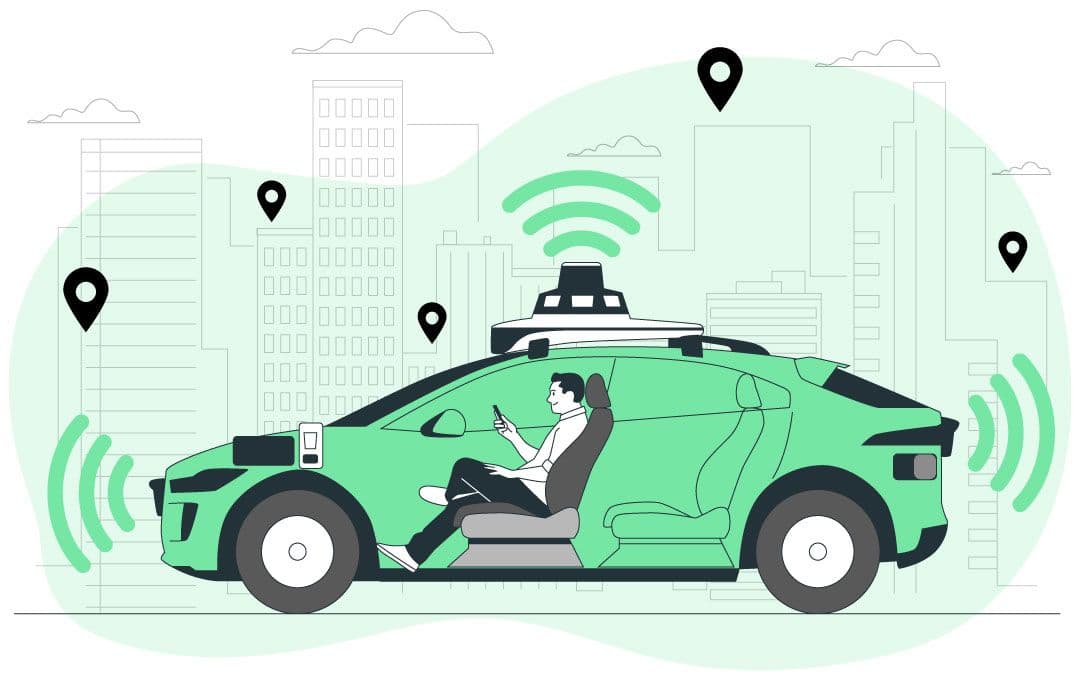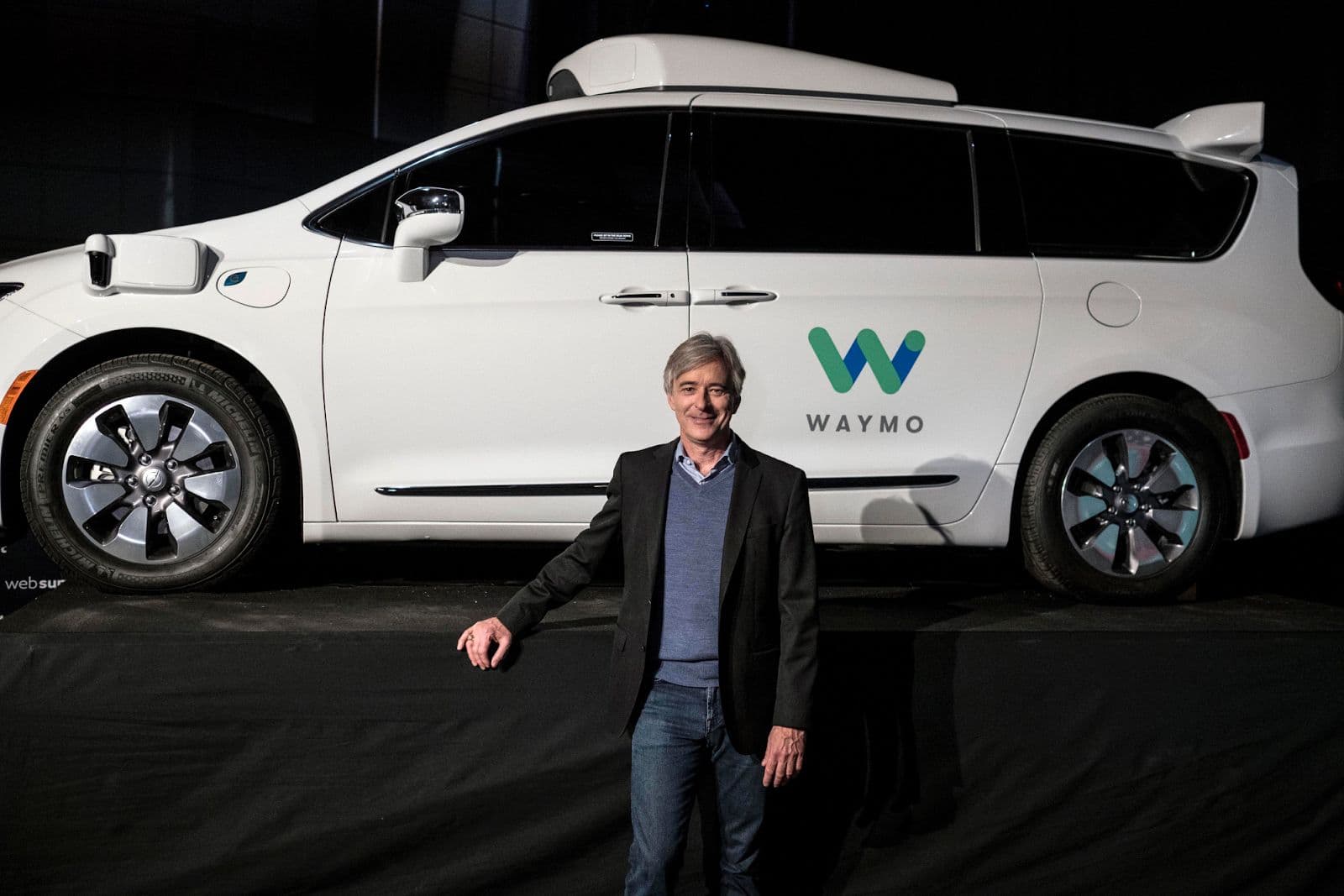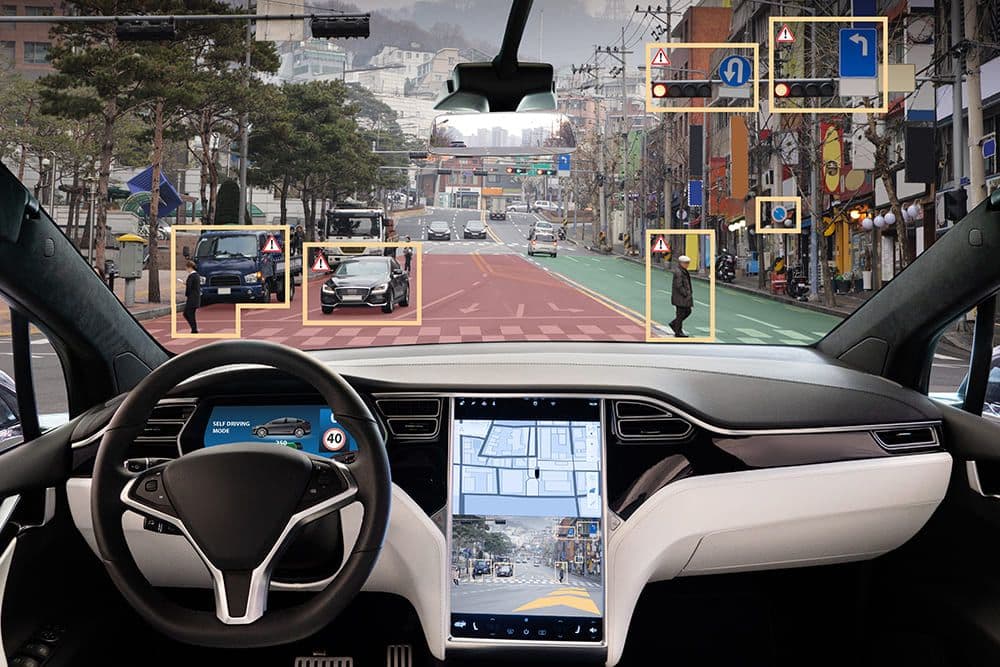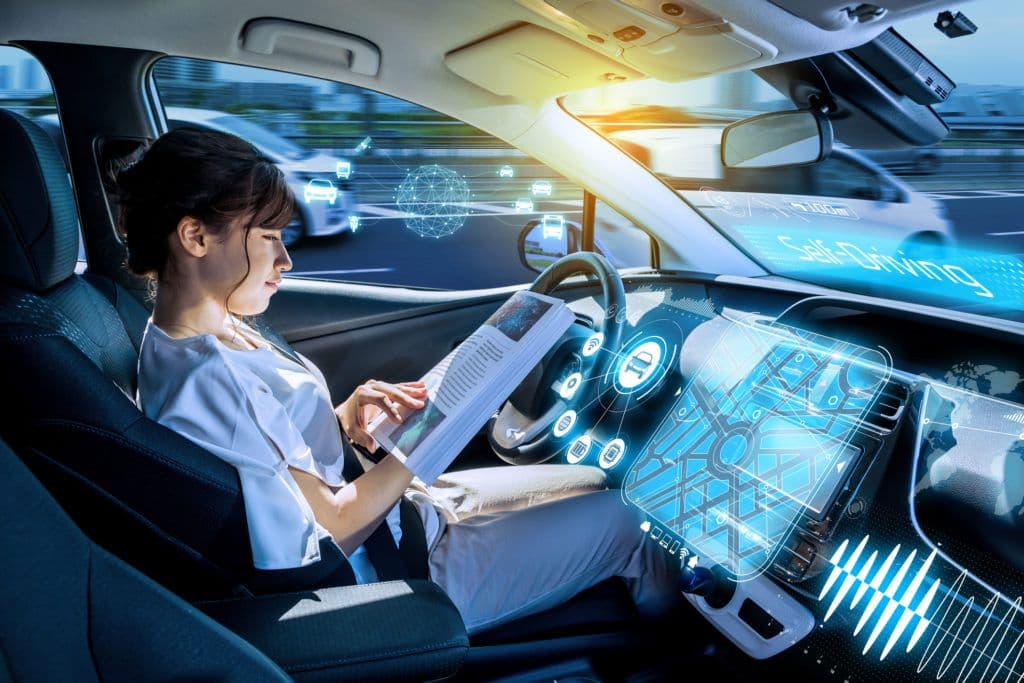Industry
Jan 11, 2024Chain Insights - Is Web3 the Key to Safer Autonomous Vehicles?
In many ways, cars are extensions of our lives, tasked with the significant role of transporting us safely from point A to point B. This intrinsic relationship is undergoing a radical transformation as the rapid evolution of self-driving vehicles ushers in a new era in automotive technology. This evolution is steering us towards a future where the paths of autonomy, safety, and efficiency are inextricably entwined.
However, the journey towards this autonomous future is laden with challenges, particularly in building consumer trust and ensuring the security of these vehicles. Research by J.D. Power and the MIT Advanced Vehicle Technology Consortium have revealed increasing consumer apprehensions; in 2022, 55% of respondents admitted to feeling "afraid" of self-driving cars, a sentiment that rose to almost 70% by 2023. This fear is exacerbated by incidents such as the hacking of over 25 Teslas by a young cyber security researcher in Germany, spotlighting the vulnerabilities in current autonomous vehicle technologies. This situation calls for a more secure and reliable approach to manage and safeguard self-driving data – a role blockchain technology has the potential to fill.
The Transition from Sci-Fi to Reality
For many years, self-driving cars were a staple of science fiction, a distant dream that seemed far from our everyday reach. But with rapid technological advancements, this dream is inching closer to reality. Modern vehicles, equipped with an array of advanced sensors, chips, and software, are gradually achieving full autonomy. Despite these significant strides, the transition from a sci-fi concept to an everyday practicality remains a work in progress.

Enhancing Connectivity and Security in Autonomous Vehicles through Blockchain and IoT
One of the major hurdles in bringing autonomous cars to the mainstream is their limited connection to the surrounding environment. Despite their capability to process millions of data points per second, these cars often interpret this information in isolation, lacking context. The integration of ‘Internet of Things’ (IoT) devices significantly enhances this aspect, enabling the collection and communication of vital contextual data like road conditions, traffic incidents, and the presence of other vehicles, further improving the cars’ navigational performance. However, these IoT devices are not without limitations; their efficacy is hampered by the current technology’s constraints, including centralized data systems that are prone to vulnerabilities and the slow transmission of data, which diminishes its value in real-time scenarios. Blockchain technology, on the other hand, offers a promising solution to elevate the current state of autonomous vehicle technology.
How Blockchain Can Revolutionize Data Management in Autonomous Vehicles
Blockchain technology stands a pioneer in the world of autonomous vehicles, offering a decentralized approach that significantly enhances data security and reliability. At its core, blockchain is a distributed ledger technology, enabling the recording of transactions across a network of computers. This ensures data is not localized in a single point, but distributed across numerous nodes, enhancing resilience against cyber-attacks and unauthorized access.
Key Technical Solutions Offered by Blockchain:
Decentralized Data Management: Blockchain offers a secure, transparent way to store vital vehicle data, like traffic conditions and sensor inputs. By preventing data monopolization, it promotes equitable and secure information exchange.
Enhanced Security Protocols: Employing advanced cryptographic techniques, blockchain fortifies data transactions, safeguarding sensitive information such as location history and operational parameters.
Reliable Vehicle Communication Systems: Blockchain excels in recording Vehicle-to-Vehicle (V2V) and Vehicle-to-Infrastructure (V2I) communications securely, crucial for improving traffic coordination and road safety in autonomous vehicles.
Smart Contracts for Automated Transactions: Utilizing smart contracts, blockchain automates key transactions in self-driving cars, like tolls and parking fees, thereby boosting operational efficiency.
Data Sharing and Monetization: The technology enables secure data sharing while preserving user privacy, allowing vehicle owners to monetize their data and contribute to a diverse and comprehensive data pool.
Blockchain’s decentralized nature offers a distinct contrast to traditional centralized databases. In blockchain, every node in the network holds a copy of the ledger, providing robust protection against data breaches and tampering. If one node is compromised, the others maintain the data's integrity. Additionally, the immutability of blockchain – with each new data block being encrypted and linked to the previous one – is pivotal in ensuring the integrity of vehicular data, a critical component for the safe operation of self-driving cars. In sum, blockchain technology is not just enhancing the security and efficiency of autonomous vehicles but also reshaping the foundations of vehicular data management.
Centralization & Oligopoly Challenges in the Autonomous Vehicle Industry
One of the most significant challenges facing the self-driving car industry is the centralization of data. Traditionally, major players like Google's Waymo, Apple, and General Motors have dominated this space, largely due to their ability to collect and process vast amounts of data necessary for training autonomous driving systems. The industry has long struggled with acquiring real-world data, essential for ensuring the safety and reliability of self-driving cars. This centralization not only creates a barrier for newcomers and smaller players but also raises concerns about data privacy and security.

GM and BMW Give Blockchain the Green Light
Leading car manufacturers like General Motors (GM) and BMW are recognizing the potential of blockchain in addressing these challenges. GM, chairing the next autonomous vehicle data markets working group under the Mobility Open Blockchain Initiative (MOBI), is exploring the use of blockchain for data sharing in self-driving cars. Similarly, BMW has acknowledged the limitations of keeping self-driving data in silos and is looking into decentralized data management to enhance the efficiency and privacy of their autonomous vehicles.
The Role of Self-Sovereign Identities and Data Privacy in Blockchain Technology
Blockchain technology's introduction of self-sovereign identities revolutionizes how personal data is handled in the digital mobility domain. In this model, individuals, including drivers and vehicle owners, gain full autonomy over their data, a stark contrast to traditional data management systems where control is often relinquished to third-party entities. This empowerment allows for a higher degree of data privacy and security, as individuals have the sole authority to decide what information is shared, with whom, and under what circumstances.
The implications of self-sovereign identities extend beyond mere data control; they transform drivers and vehicle owners into active participants in the digital mobility ecosystem. This paradigm shift enables individuals to not only safeguard their data but also to monetize it. For instance, drivers can choose to share their driving habits, vehicle performance data, or travel routes with interested parties, such as automotive researchers or traffic management entities, in exchange for compensation or other benefits. This opportunity to monetize data can stimulate a more dynamic and user-driven automotive industry, encouraging innovation and consumer engagement.
Improving Data Sharing and Machine Learning Through Blockchain
In the realm of autonomous vehicles, one of the standout advantages of blockchain technology is its ability to enhance data sharing and machine learning. By facilitating a secure and efficient exchange of data among key industry players, such as vehicle manufacturers, technology companies, and end-users, blockchain creates an environment conducive to collaboration and innovation. The shared data pool that emerges from this collaborative effort is invaluable for the development and refinement of artificial intelligence (AI) models that are at the heart of self-driving vehicles.
This shared repository of data is rich with diverse, real-world scenarios, making it an ideal resource for training AI models in navigating complex and unpredictable driving conditions. Through blockchain, the data collected is not only more comprehensive but also more reliable, as the technology ensures the integrity and authenticity of the data shared. This level of data quality is crucial for the accuracy and safety of AI-driven vehicles. Additionally, the speed at which data can be shared and processed is significantly enhanced in a blockchain-based system, enabling faster iterations of machine learning models and thereby accelerating the pace at which reliable and efficient self-driving cars are developed and brought to market.

Redefining the Autonomous Vehicle Industry
Blockchain technology offers a promising solution to the issues plaguing the self-driving car industry. By providing a secure, decentralized platform for data management and sharing, blockchain not only addresses the security concerns but also aids in the efficient development of autonomous driving technology. As industry giants like GM and BMW explore these avenues, it's clear that blockchain could be the key to winning consumer trust and ensuring the safe, secure adoption of self-driving vehicles.

About Chain
Chain is a blockchain infrastructure solution company that has been on a mission to enable a smarter and more connected economy since 2014. Chain offers builders in the Web3 industry services that help streamline the process of developing, and maintaining their blockchain infrastructures. Chain implements a SaaS model for its products that addresses the complexities of overall blockchain management. Chain offers a variety of products such as Ledger, Cloud, and NFTs as a service. Companies who choose to utilize Chain’s services will be able to free up resources for developers and cut costs so that clients can focus on their own products and customer experience. Learn more: https://chain.com.
Connect with Chain for the latest updates:
Twitter: twitter.com/Chain
Facebook: facebook.com/Chain
Instagram: instagram.com/Chain
Telegram: t.me/Chain
Youtube: youtube.com/chain
Chain News & Updates
Latest News & Updates
Sign up for the Chain Newsletter - a weekly roundup of new platform features and the latest from the industry.
